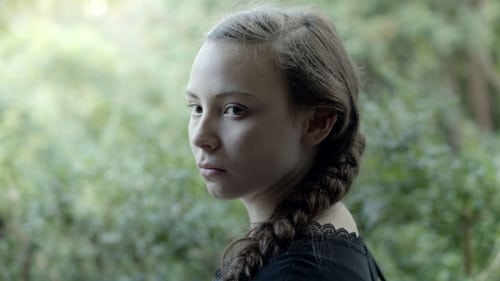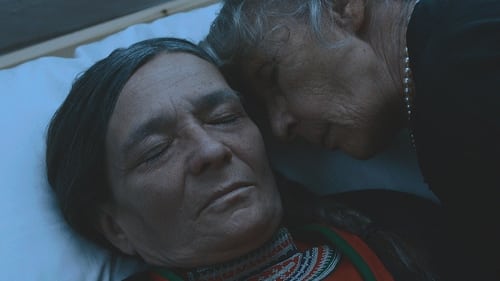Högfjällets dotter (1914)
Genre :
Runtime : 32M
Director : Victor Sjöström
Synopsis

Elle Marja, 14, is a reindeer-breeding Sami girl. Exposed to the racism of the 1930s and phrenological examinations at her boarding school, she starts dreaming of another life. To achieve this other life she has to become someone else and break all ties with her family and culture.

September of 1944, a few days before Finland went out of the Second World War. A chained to a rock Finnish sniper-kamikadze Veikko managed to set himself free. Ivan, a captain of the Soviet Army, arrested by the Front Secret Police 'Smersh', has a narrow escape. They are soldiers of the two enemy armies. A Lapp woman Anni gives a shelter to both of them at her farm. For Anni they are not enemies, but just men.

Elle, 78, doesn't like Sámi people—even though she is Sámi. Pressured by her son, she returns north for her sister's funeral. When she realizes he's planned for them to stay with their relatives, Elle checks into a hotel.

The third and final part of a trilogy based on Arctic creation myths. The film is a multifaceted tissue weave of myths and traditions reflected in the symbiosis between reindeer, human and landscape.

Ánne is attending a writer’s course. She is met with racial prejudices because of her Sami ethnicity. A writing assignement gives her the courage to confront a fragile memory, a wound that cuts deep.

This is a trilogy about Norway’s shame.

Documentary by Stig Wesslén, commenced in 1942 and ended seven years later. Here he shows human and animal, and follows the nomadic life in an old culture.

A woman returns home to her father and childhood home, after being gone for over 20 years. Her purpose for the visit is to deliver the message that her fathers former wife has passed away.

Why are gooseberries so much more valuable than deer trees and why did the Sami men lay naked on the marsh in the past? How do you respond to a mock execution and what is actually panic attack? Ella and Moa are two girls with more questions than answers and during a summer night they approach a little cautiously of their Sami origin. —Jonas Selberg Augustsén

Fifteen-year-old Máigon and her best friend Ánne-Sire are living in a small village in the Arctic tundra. It is summertime and the nights are nightless. The naive Máigon is challenged by the more experienced Ánne-Sire to make her sexual debut. Máigon feels the pressure, but she has her own plan, one that takes them on a fateful trip.

Based on true events, Let the River flow is a story about Ester, recently graduated teacher who turns into an activist, and is ready to sacrifice her life for the rights of nature and the Sámi.

1944. Norway is under Nazi occupation. Two sámi help the Norwegian resistance on a sabotage mission, but the bridge they’re about to blow up is guarded by a man in Nazi uniform. A fellow sámi in Nazi uniform.









